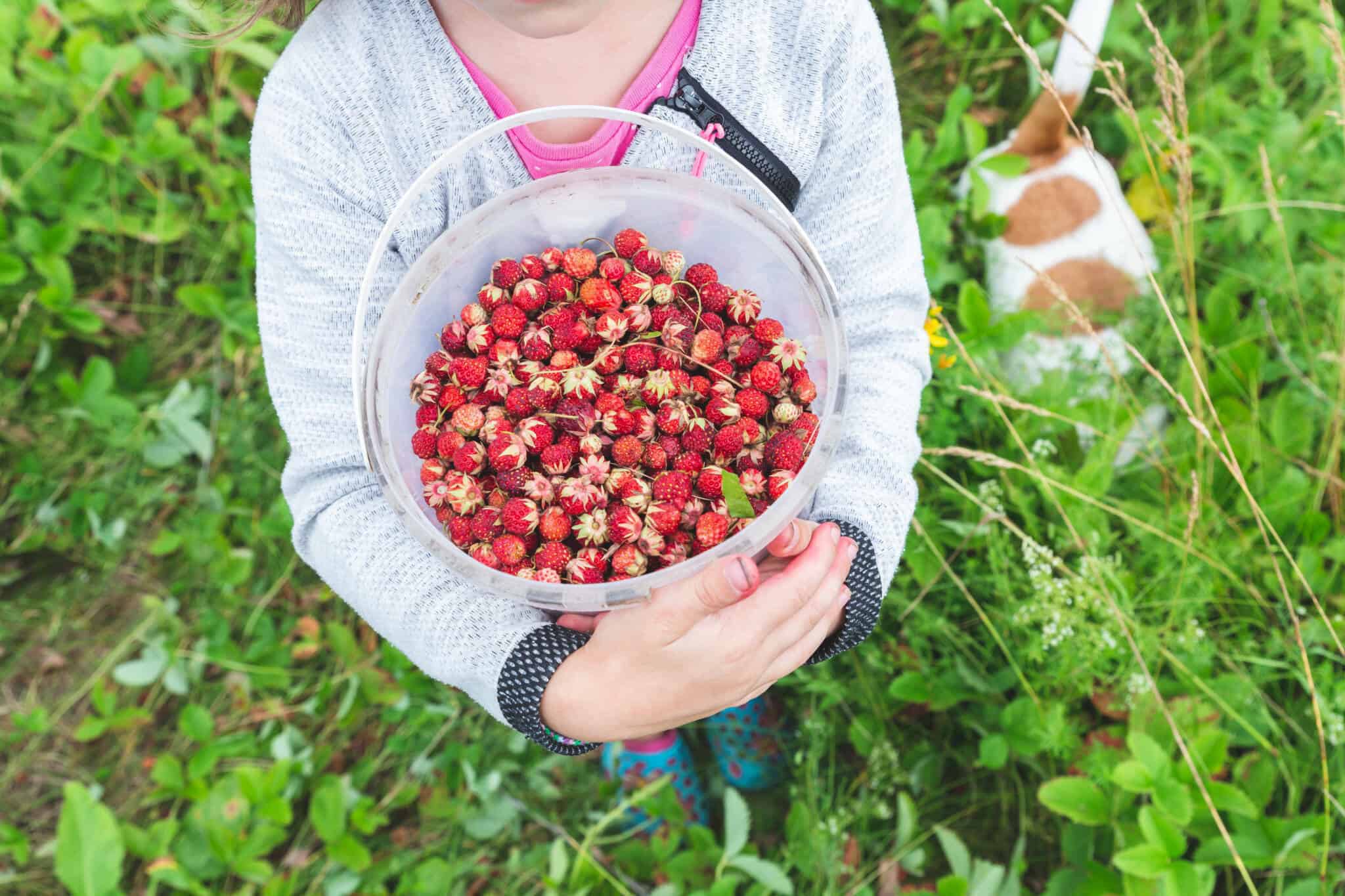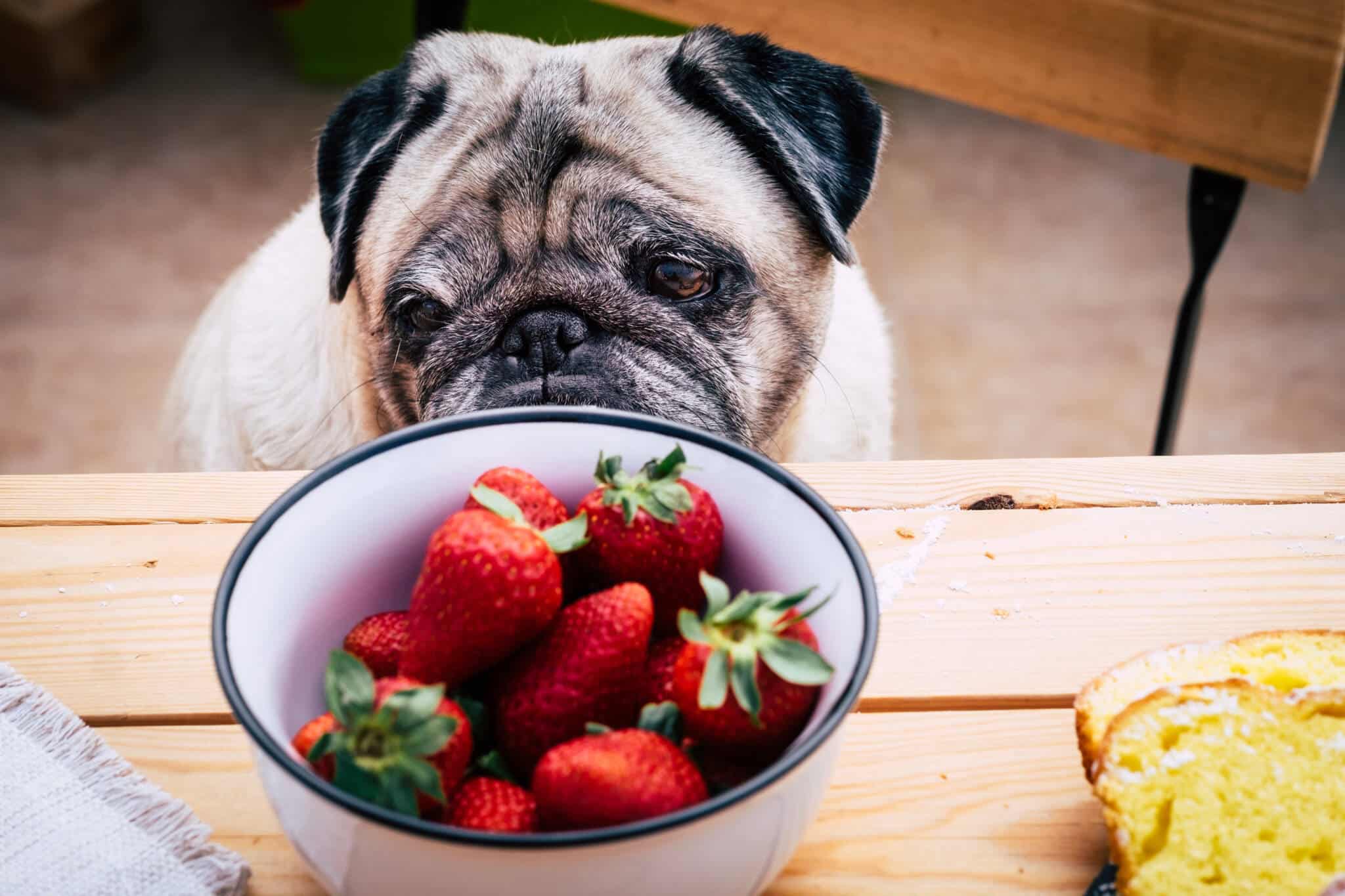
If you’re a dog owner, chances are you’ve wondered if giving your pet certain human foods is okay. Can dogs with kidney disease eat strawberries, for example? The answer is yes—strawberries are a safe and healthy snack for dogs with kidney disease. But as with any food, monitoring your dog’s reaction and adjusting the dosage as necessary is important. So why not give strawberries a try? Your furry friend will love them!
That being said, there are some guidelines to follow and important things to know before you get started with giving your dog strawberries, especially if they are suffering from a condition like kidney disease. Follow along for more information.
Table of contents
Benefits of Strawberries for Dogs
The benefits of strawberries for dogs are many. First and foremost, they’re a great source of antioxidants. Antioxidants help to protect your dog’s cells from damage, which is especially important for dogs with kidney disease. Kidney disease can cause oxidative stress, so it’s important to give your dog foods that will help combat that.

Strawberries are also a good source of fiber, which can help to regulate your dog’s digestion. This is important because kidney disease can often lead to gastrointestinal issues. The fiber in strawberries can also help to bulk up your dog’s stools, making them easier to pass.
Finally, strawberries are a low-calorie treat, which is important for dogs who are struggling with weight gain. Obesity can make kidney disease worse, so it’s crucial to keep your dog at a healthy weight.
Downside of Strawberries for Dogs
The biggest downside of feeding strawberries to your dog is the potential for digestive upset. Some dogs may experience diarrhea or vomiting after eating strawberries. If this happens, it’s important to stop giving your dog strawberries and consult with your veterinarian.
Other dogs may be allergic to strawberries. While this is relatively rare, it’s important to be aware of the signs of an allergic reaction, which can include itching, swelling, and difficulty breathing. If you think your dog is having an allergic reaction, call your veterinarian immediately.

Best Way to Feed Strawberries to Dogs
If you decide that you want to give your dog strawberries, it’s important to do so in moderation. Start by giving your dog a few small pieces of strawberry and see how they react. If they seem to enjoy it and don’t have any adverse reaction, you can gradually increase the amount you give them.

It’s also important to only give your dog fresh strawberries. Avoid giving them processed strawberries, as these can contain added sugar and other ingredients that may not be safe for dogs.
How Many Strawberries Can a Dog Eat?
The number of strawberries a dog can eat will depend on their size, weight, and health condition. For example, a small dog may only be able to handle a few pieces of strawberry, while a large dog may be able to eat an entire strawberry.

Additionally, dogs with kidney disease will likely need to limit their intake of strawberries due to the high potassium content. Consult with your veterinarian to determine how many strawberries, if any, are safe for your dog to eat.
What About Other Fruits?
In general, most fruits are safe for dogs to eat in moderation. However, there are a few that should be avoided, including grapes, raisins, and currants. These fruits can cause kidney damage in dogs, so it’s best to steer clear.
Additionally, citrus fruits like oranges and lemons contain high levels of citric acid, which can irritate your dog’s stomach. It’s best to avoid these fruits as well.
If you’re unsure whether a particular fruit is safe for your dog, check with your veterinarian.

What Causes Kidney Disease in Dogs?
There are a number of different things that can cause kidney disease in dogs, including infection, trauma, cancer, and toxicity. Additionally, some breeds of dogs are more prone to kidney disease than others.

When you think your dog may have kidney disease, it’s important to monitor what they eat. Some foods may worsen their condition or elicit certain reactions.
If you want your dog to have good health and live a happy life, it’s in your best interest to closely monitor their diet and other lifestyle factors to ensure they are doing healthy behaviors.
Other Good Foods for Dogs with Kidney Disease
While strawberries are a great snack for dogs with kidney disease, they’re not the only food that can help. Other good options include:
- Canned pumpkin: Pumpkin is a good source of fiber and antioxidants. It can also help to settle your dog’s stomach.
- Yogurt: Plain yogurt is a good source of protein and probiotics. Just be sure to choose a yogurt that doesn’t contain any added sugars.
- Baby carrots: Baby carrots are low in calories and a good source of fiber. They can also help to clean your dog’s teeth.
- Green beans: Green beans are low in calories and a good source of vitamins A and C.
Can Dogs With Kidney Disease Eat Banana?
Bananas are a good source of potassium, which can be harmful for dogs with kidney disease. Potassium levels should be closely monitored in these dogs, so it’s best to avoid feeding them bananas.
Can Dogs With Kidney Disease Eat Apples?
Apples are safe for most dogs to eat. However, they do contain a small amount of phosphorus, which can be harmful for dogs with kidney disease. So it’s best to avoid feeding apples to these dogs.

Key Takeaways
Strawberries are a healthy and delicious treat for dogs. Just be sure to start slowly and watch for any adverse reactions. Feel free to give your dog strawberries in moderation–they will probably love them!

